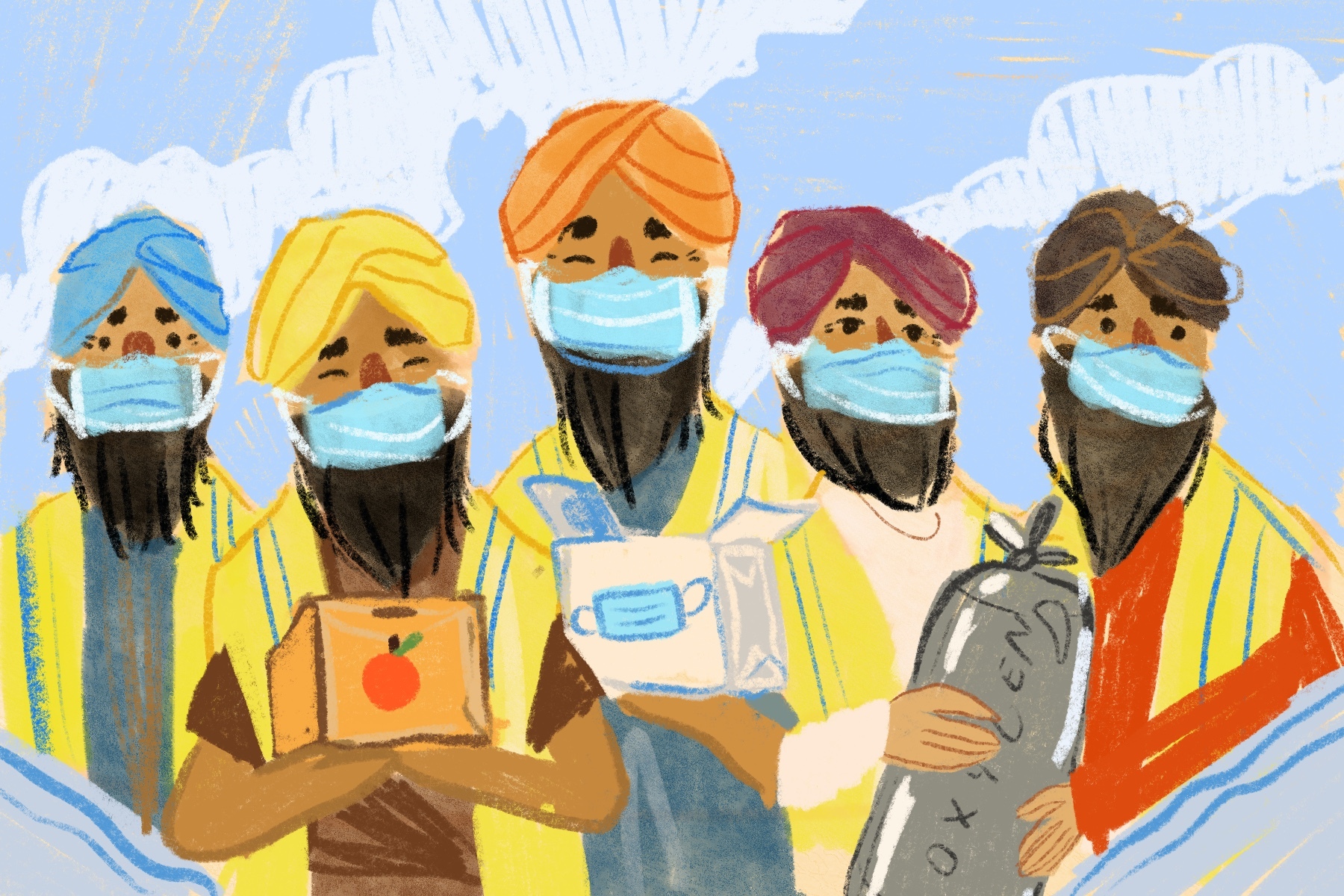On May 30, New York City mayoral candidate and businessman Andrew Yang tweeted that he is “so inspired by what the Sikh community has done during this pandemic — from cooking and delivering food to providing COVID testing and holding blood drives.” He then went on to say that New York City “needs to learn from the Sikh community and do much, much more to help [its] neighbors” and that it is his promise to hold the city to the Sikhs’ level of moral accountability.
Yang has not been the only person to take notice of the Sikh community’s activism. The New York Times, The Dallas Morning News, San Antonio Express-News and many other media outlets have all published pieces about Sikhs, both locally and abroad, who have gone out of their way to serve their communities during this time of tremendous need.
Service and acceptance of all are key values of the Sikh faith. Because of Sikhism’s strong emphasis on charity, it is no surprise that its adherents have become such key actors in alleviating the hardships brought on by COVID-19. The religion’s holy texts encourage its followers to fight for justice and give selflessly. In fact, a common Sikh practice is the running and maintenance of langars, which are open-to-the-public kitchens where Sikhs serve anyone in want or need of a hot meal.
Upon entering a langar, Sikhs and visitors alike remove their shoes and retrieve their meals, which are served from communal dishes. Everyone then scurries on to find a seat at the long, shared tables that langars offer to the public. Providing an opportunity for strangers of different backgrounds to eat and converse together, langars attempt to provide a safe space where all humans can dine as a collective, leaving judgment and preconceived notions at the door.
Although the Sikh practice of communal dining in langars has been temporarily halted due to the highly contagious nature of COVID-19, Sikh efforts to feed the masses have not. During the height of the Black Lives Matter protests that swept the United States after the police murder of George Floyd in the summer of 2020, Sikhs of New York City cooked and distributed thousands of meals to social justice protesters. This was not an isolated case.
In Maharashtra, India, a 41-year-old Sikh man by the name of Jamshed Singh Kapoor has been running a “‘langar’ on wheels.” Kapoor serves free meals to hundreds of Indians a day out of his food cart, which resembles a typical street-side food vendor booth. The Sikh’s work is especially pertinent as India continues to log tens of thousands of new coronavirus cases a day.
On the other side of the world in the small city of Frisco, Texas, local Sikhs have also made incredible efforts to feed their community during the peak of the global pandemic. Unable to hold typical, in-person service, Frisco Sikhs have opted to express their faith through community service. Delivering food to health workers and preparing meals for distribution by a local shelter, the Sikhs of Frisco, Texas, found a hands-on way to keep their own faith-community engaged, while, in the same breath, sharing that same sense of community and love with the broader North Texas area.
The Sikhs’ sharing of sustenance hasn’t been the community’s only contribution to COVID-19 relief efforts. The global Sikh community has also been applauded for its help in providing medical necessities to those suffering from COVID-19. When India faced a national oxygen shortage earlier this summer, countless Indians suffered the consequences. Without the proper supply of oxygen in India’s largest cities, many diagnosed with COVID-19 died a preventable death.
The Indian Sikh population, though unable to provide the means to completely stop the nation’s oxygen shortage, did everything in its power to help those who struggled to find access to oxygen, especially in the country’s larger cities. In Delhi, India, many Sikh gurdwaras, which are Sikh places of worship, set up what have been coined as “oxygen langars.” Like traditional langars, “oxygen langars” provided communities in need with access to a critical, primary necessity. Instead of food, “oxygen langars” worked to provide Indians with oxygen.
Also in Delhi, India, the Delhi Sikh Gurdwara Management Committee or DSGMC bought numerous ambulances to provide the city’s residents with free ambulance transportation services. Additionally, one prominent gurdwara in Delhi “opened a pharmacy to provide medicines at subsidised rates.” Here, Delhiites are able to purchase life-saving medicines at extremely discounted prices. Efforts such as these make the Sikhs’ selfless efforts to help the world at large abundantly clear to onlookers.
The Sikh community treats outsiders like their own brothers and sisters. Sikhs are large proponents of equality and fighting for justice when necessary. Sikh scripture encourages its followers to live out in the real world and find meaningful work that adds positively to the overall human experience. Sikhs also believe in the importance of Seva, or philanthropic service that is performed without the expectation of receiving a reward or recognition.
Throughout the course of the COVID-19 pandemic, the international Sikh community has played a critical role in providing the needy with support and access to basic needs. Although this work is done without want of public applause or distinction, it is important to recognize and acknowledge the work of the Sikh community as a whole over this past year and a half, at the very least, to provide the world with a source of inspiration and faith in humankind.
In recent years, news coverage has created an epidemic of its own kind, characterized by negativity and apathy. Stories highlighting the efforts of the global Sikh community as well as other relief actors of the COVID-19 pandemic are not only warmly welcomed, they are absolutely essential. In such trying times, humans must continue to believe in each other.
Although it seems, at times, that we are pitted against each other, sporting completely different objectives and opinions about life, people still need other people. Humans are capable of providing outstanding good to neighbors and strangers alike. The efforts of the Sikh community exemplify this human altruism.

















